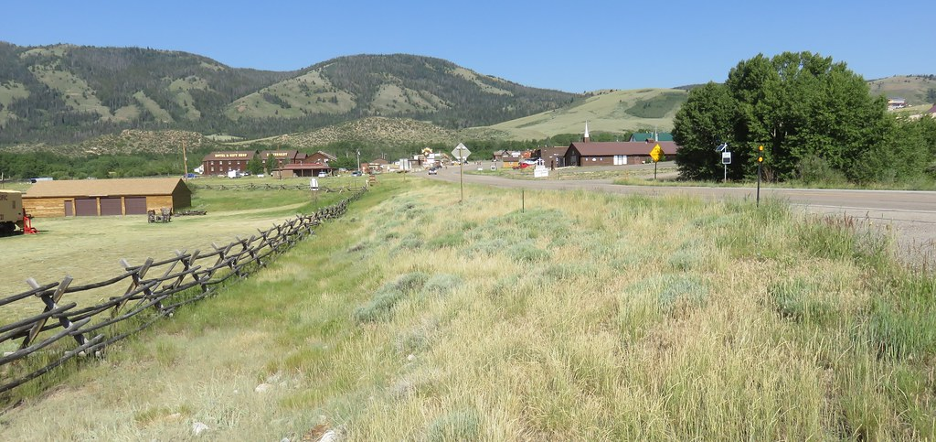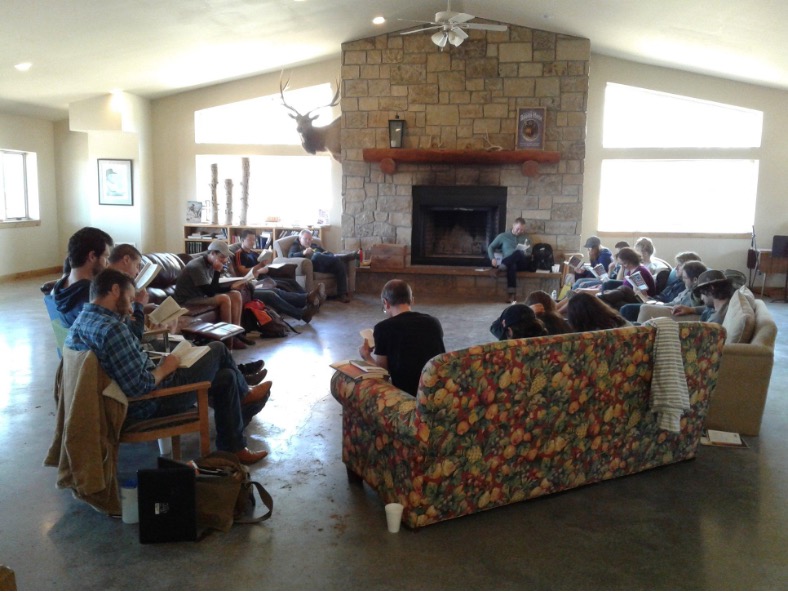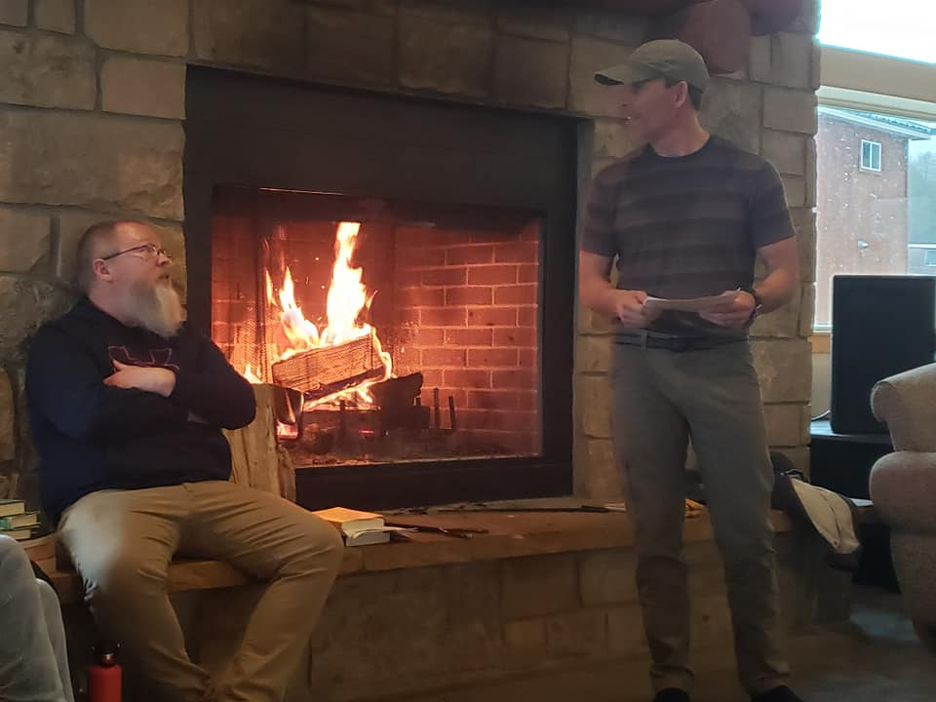The University of Wyoming Department of Philosophy and Religious Studies is once again hosting their Stoic Camp, running from May 16 to May 20, 2022 – an excellent opportunity not only to study and apply Stoic philosophy, but to do so in a setting of considerable natural beauty – Table in the Wilderness camp, in Centennial, Wyoming. The camp is run by Rob Colter (robcolter.com ), of the University of Wyoming, and co-host of the Philosophy as a Way of Life podcast with Massimo Pigliucci.
 Founded in 2014, Wyoming Stoic Camp includes intensive small and large group studies of central Stoic texts such a Epictetus’ Enchiridion and Discourses, and Marcus Aurelius’ Meditations, talks by invited speakers, early morning and evening hikes, partaking in good food, as well as some unstructured down time. Other outdoor activities participants have the opportunity to engage in include hiking, bonfires, and waking up to the sunrise on the final morning.
Founded in 2014, Wyoming Stoic Camp includes intensive small and large group studies of central Stoic texts such a Epictetus’ Enchiridion and Discourses, and Marcus Aurelius’ Meditations, talks by invited speakers, early morning and evening hikes, partaking in good food, as well as some unstructured down time. Other outdoor activities participants have the opportunity to engage in include hiking, bonfires, and waking up to the sunrise on the final morning.
Participants come from all over the USA and even from Europe, to take seriously the Stoic goal of “living in agreement with nature.” But we come to see that the nature the Stoics had in mind is much more than the beautiful scenery of the remote Wyoming Rocky Mountains. It includes, centrally, our own natures as human beings. We try to develop this connection between our rational, pro-social selves and the rest of the universe by engaging not only in close readings of some central texts, but also in practices and exercises derived from the ancient texts and inspired by those in Stoic Week.
The camp brings together participants of all ages (from college students to retirees), professions, (from academics to firefighters, and from marketers to actors, and many more!), and locations (from the local mountain west, to both coasts, and everywhere in between). After arriving at the camp, distributing the materials, and settling in, participants gather to begin reading and discussing. For example, we might read from Epictetus’ Enchiridion 1:
Some things are up to us and some things are not up to us. Our opinions are up to us, and our impulses, desires, aversions – in short, whatever is our own doing, Our bodies are not up to us, nor are our possessions, our reputations, or our public offices, or, that is, whatever is not our own doing. The things that are up to us are by nature free, unhindered, and unimpeded; the things that are not up to us are weak, enslaved, hindered, not our own. …
We work our way through passages like these, and discuss their meaning and implications for a few hours, at whatever pace Fate allows. Then, participants are asked to take some time, find a place on the property, and engage in some exercises, such as this one, derived from ideas found in Enchiridion 1:
Explore this idea of what is up to us further by using the following questions to help you evaluate a specific situation, and by practicing the skills you’re going to be using regularly over the next few days. Starting now, begin training yourself to grasp firmly what’s up to you and what isn’t in any situation, particularly those things that arouse strong desires or upsetting emotions. Take a few minutes to write down your answers to the following questions, in relation to an example you’ve picked.
- What’s the situation?
- How much control do you have over the situation as a whole (0–100%)?
- Why isn’t it 100%? What aspects don’t you have direct control over?
- Why isn’t it 0%? What aspects do you have direct control over?
- What would happen if you made a conscious effort to adopt a more Stoic attitude towards this situation by accepting things beyond your control and taking full responsibility for things under your control?
Having a Stoic attitude means accepting that things not up to you are not up to you. It also means taking full responsibility for those things that are up to you, and viewing these as what really matters in any situation.
 When we come together again, we discuss as a group some of what we learned from this exercise. At other times, we gather in small groups to discuss a different text, such as the Meditations of Marcus Aurelius.
When we come together again, we discuss as a group some of what we learned from this exercise. At other times, we gather in small groups to discuss a different text, such as the Meditations of Marcus Aurelius.
Examples include passages such as:
What should a philosopher say in the face of each of the hardships of life? ‘It is for this that I’ve been training myself; it was for this that I was practicing.’ God says to you, ‘Give me proof of whether you’ve competed in accordance with the rules, whether you’ve followed the proper diet, carried out the proper exercises, and have obeyed your trainer.’ And then when the time comes for you to act, will you quail? Now is the time when you have to suffer an illness – let it happen as it must; to endure thirst – endure it with the right attitude; to endure hunger – endure it with the right attitude. Isn’t that up to you? (Epictetus, Discourses, 3.10)
This passage talks about how we might endure hardships, and how we might prepare ourselves to face them. Each participant might find something to relate to here. And perhaps this meditation can be useful on some of the hikes available, through pine forests:
On most of the evenings, we have guest speakers, typically from the University of Wyoming, come up to do a “fireside chat.” This typically involves a more in-depth look at some specific aspect of Stoicism or a related philosophical topic, in a very conversational manner. Some examples of topics have included discussions of the notion of philosophia as found in antiquity, Stoicism and gladiators, Victor Frankl and Stoicism, and a perennial favorite, “Why Stoicism is Wrong!”
 One favorite, or not so favorite for some, meditative exercise involves considering the following passage from Marcus:
One favorite, or not so favorite for some, meditative exercise involves considering the following passage from Marcus:
The Pythagoreans were wont betimes in the morning the first thing they did, to look up unto the heavens, to put themselves in mind of them who constantly and invariably did perform their task: as also to put themselves in mind of orderliness, or good order, and of purity, and of naked simplicity. For no star or planet hath any cover before it. (Marcus Aurelius, Meditations, 11.27)
And then rising before dawn in order to follow the Pythagorean practice, we hike up the ridge for a pretty spectacular view of the sunrise. Some participants balk at the early wake-up, but the payoff is generally worth it:
The goals of Wyoming Stoic Camp are to experiment with living in a thoroughly philosophical way, using the Stoics as models, and to explore what it means to live intentionally, and in accord with Stoic principles. We strive to explore the relation between the theoretical and the practical in an intensive and immersive manner. Participants use the camp to deepen their understanding of Stoicism and explore what it might mean to live in a thoroughly philosophical way, and what the relation between study and life might look like in their own lives. Each participant is encouraged to explore what these ideas might mean for them, in their own situations, and at their own pace.
If you would like to join us this year, registration for the camp is US $400.00, and includes lodging, meals and books. Students should inquire about discounted prices. For more information about Wyoming Stoic Camp, you can check out the website here. Enquiries can also be sent here.
Discover more from Modern Stoicism
Subscribe to get the latest posts sent to your email.




